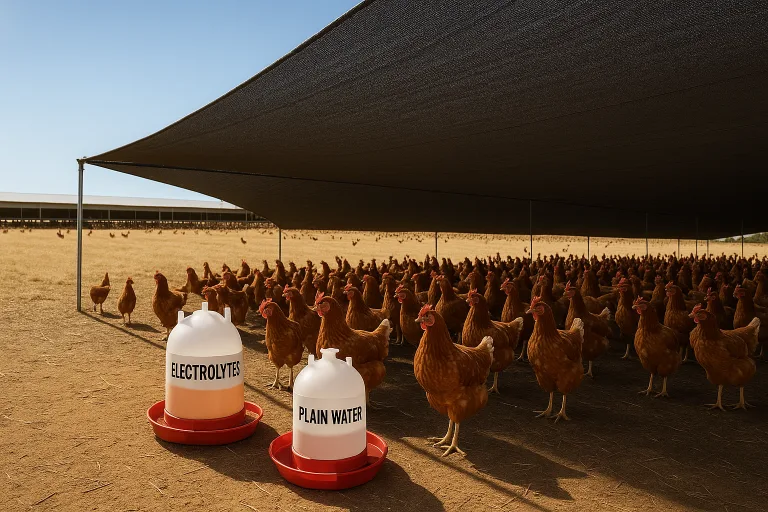Backyard Egg Selling Laws In South Dakota
Did you know that selling eggs from your backyard in South Dakota is subject to certain laws and regulations? These rules are in place to ensure the safety and quality of the eggs being sold, as well as to protect the consumers.
Whether you’re considering starting a backyard egg-selling business or simply curious about the legal requirements, it’s important to understand the ins and outs of the process.
So, let’s explore the backyard egg selling laws in South Dakota and discover what you need to know to comply with the regulations and avoid potential penalties.
State Requirements
To legally sell eggs from your backyard in South Dakota, you must adhere to specific state requirements. South Dakota has established state regulations for backyard farming, including the sale of eggs. These regulations aim to ensure the safety and quality of eggs sold to consumers.
Firstly, backyard farmers in South Dakota must obtain a license to sell eggs. This license can be obtained by completing an application form and paying the required fee. The application process typically involves providing information about your backyard flock, such as the number of chickens you have and the conditions in which they’re kept.
Additionally, the state regulations require backyard farmers to follow specific guidelines for the production and handling of eggs. This includes keeping the chickens in sanitary conditions, providing proper nutrition and water, and regularly inspecting and cleaning the nesting areas.
Moreover, South Dakota also has requirements regarding labeling and packaging of eggs. Backyard farmers must ensure that the eggs are properly labeled with their name and address, as well as the date the eggs were laid. The eggs should also be packaged in clean and secure containers to prevent contamination.
Licensing and Permits
To sell eggs from your backyard in South Dakota, you’ll need to obtain the necessary permits and licenses.
The permit requirements and licensing process are important to understand in order to comply with the state regulations.
Permit Requirements
In order to legally sell eggs from your backyard in South Dakota, you must obtain the necessary permits and licenses. Here are the permit requirements you need to fulfill:
- Food Safety Education: Before applying for a permit, you’re required to complete a food safety education course. This course covers topics such as proper handling and storage of eggs, sanitation practices, and health regulations.
- Permit Application: Once you have completed the food safety education course, you can submit a permit application to the South Dakota Department of Agriculture. The application includes details about your backyard flock, such as the number of chickens and the size of your operation.
- Inspection Process: After submitting your application, an inspector will visit your property to ensure compliance with food safety regulations. They’ll check the cleanliness of your facilities, proper storage of eggs, and the overall health of your flock.
- Renewal: Permits are typically valid for one year and must be renewed annually. This ensures that you’re maintaining compliance with food safety standards.
Licensing Process
The licensing process for selling eggs from your backyard in South Dakota involves obtaining the necessary permits and licenses.
To comply with state regulations, you must first apply for a license from the South Dakota Department of Agriculture (SDDA). You’ll need to provide information about your flock size, facilities, and biosecurity measures.
Once your application is approved, an inspection process will be conducted by the SDDA to ensure that your operation meets the required standards. This inspection will cover areas such as cleanliness, proper storage, and labeling of eggs.
If any issues are identified during the inspection, you’ll be given a timeframe to make the necessary improvements. Once your operation is deemed compliant, you’ll be issued a license that allows you to sell eggs from your backyard in South Dakota.
Labeling and Packaging
When it comes to selling backyard eggs in South Dakota, it’s important to understand the legal labeling requirements and safe packaging guidelines.
Labeling the eggs correctly not only ensures compliance with the law but also provides important information to consumers, such as the date of packaging and expiration.
Additionally, packaging the eggs in a safe and secure manner helps maintain their freshness and quality, reducing the risk of contamination or damage during transportation.
Legal Labeling Requirements
Legal labeling requirements for backyard egg sellers in South Dakota ensure that consumers receive accurate and essential information about the eggs they purchase. These requirements are in place to prioritize food safety and protect consumers from any potential health risks.
Here are four key aspects of the legal labeling requirements:
- Product name: The label must clearly state that the eggs are produced in a backyard setting to inform consumers about the source of the eggs.
- Producer information: The label should include the name and contact information of the person or farm responsible for producing the eggs, allowing consumers to reach out with any concerns or questions.
- Date of packaging: This information is crucial for consumers to know the freshness and shelf life of the eggs they purchase.
- Handling instructions: The label should provide instructions on proper storage and handling to maintain the quality and safety of the eggs.
Safe Packaging Guidelines
To ensure the safety and integrity of your backyard eggs, it’s crucial to adhere to proper labeling and packaging guidelines. By following these guidelines, you can maintain the quality of your eggs and effectively market them to potential customers.
When it comes to packaging, it’s recommended to use clean and sturdy cartons that can protect the eggs from damage during transportation. Additionally, labeling plays a significant role in providing important information to consumers.
Make sure to include the date of packaging, your farm’s name or logo, and any relevant nutrition facts or production methods. This won’t only enhance the professional appearance of your product but also build trust and credibility with your customers.
Health and Safety Regulations
Health and safety regulations play a crucial role in ensuring the quality and integrity of backyard egg selling practices in South Dakota. These regulations are in place to protect both the consumers and the sellers, ensuring that the eggs being sold are safe for consumption.
Here are four key aspects of the health and safety regulations for backyard egg selling in South Dakota:
- Food handling: Sellers are required to follow proper food handling practices to minimize the risk of contamination. This includes washing hands before and after handling eggs, using clean packaging materials, and storing eggs at the appropriate temperature.
- Inspection process: Backyard egg sellers are subject to regular inspections by the South Dakota Department of Health. These inspections ensure that sellers are complying with the health and safety regulations, and that the eggs being sold meet the necessary standards.
- Labeling requirements: Sellers must clearly label their eggs with important information such as the date of packaging, the seller’s contact information, and any potential allergens. This helps consumers make informed decisions and ensures transparency in the selling process.
- Disease prevention: Sellers are responsible for taking measures to prevent the spread of diseases among their flock. This includes regular vaccinations, proper sanitation practices, and isolating sick or infected birds to prevent the spread of illness.
Selling Locations and Methods
After ensuring that you’re following the health and safety regulations for backyard egg selling in South Dakota, it’s important to consider the various selling locations and methods available to you. Choosing the right selling strategies and effectively reaching out to potential customers can greatly impact the success of your backyard egg business.
When it comes to selling locations, you have a few options to consider. One popular choice is selling directly from your own property. This allows customers to see firsthand where the eggs are coming from and can create a sense of trust in the quality of your product.
Another option is to sell at local farmers markets or flea markets. These venues attract a diverse range of customers who are specifically looking for fresh, local produce. Additionally, you can explore partnering with local grocery stores or restaurants to sell your eggs. This provides a wider customer base and the potential for recurring sales.
In terms of selling methods, one effective strategy is to offer different packaging options. Some customers may prefer to purchase a dozen eggs at a time, while others may prefer smaller quantities. Offering different sizes and quantities can attract a wider range of customers.
Additionally, utilizing social media platforms and online marketplaces can help expand your customer outreach. Creating a website or social media page where customers can place orders or find information about your eggs can be a valuable tool for reaching new customers.
Potential Penalties and Enforcement
Violating the backyard egg selling laws in South Dakota can result in potential penalties and enforcement measures. It’s important to understand the consequences of non-compliance to ensure that you operate within the legal boundaries. Here are four key points to consider:
- Fines: If you’re found to be in violation of the backyard egg selling laws, you may be subject to fines. The amount of the fine can vary depending on the severity of the violation and the discretion of the enforcing authority.
- Cease and desist orders: In addition to fines, you may also receive a cease and desist order. This order requires you to immediately stop selling eggs from your backyard until you’re in compliance with the necessary regulations.
- Revocation of license: If you have obtained a license to sell backyard eggs and are found to be repeatedly violating the laws, your license may be revoked. This means that you’ll no longer be allowed to sell eggs from your property.
- Legal action: In extreme cases of non-compliance, legal action may be taken against you. This can result in further penalties, such as additional fines or even criminal charges.
It is important to familiarize yourself with the backyard egg selling laws in South Dakota and ensure that you adhere to them to avoid the potential penalty consequences and enforcement measures.
Conclusion
In conclusion, selling backyard eggs in South Dakota requires compliance with state requirements, licensing and permits, labeling and packaging guidelines, as well as health and safety regulations.
It’s important to understand the selling locations and methods permitted by the state. Noncompliance with these regulations may result in potential penalties and enforcement actions.
It’s crucial to familiarize oneself with the laws and regulations to ensure a successful and legal backyard egg selling operation in South Dakota.


